Dare to be a freedom-centered leader!
I recently celebrated my 52nd anniversary of leaving communist Cuba and embracing freedom. One of my preferred places to go when thinking about freedom is Williamsburg, VA. Williamsburg was the birth place of the American Revolution. Every time I go, I’m reminded of why freedom is to be treasured.
The last time I walked around Williamsburg, I heard someone impersonating Patrick Henry, one of the leading lights of the American Revolution. He was also one of the leaders of the movement to add a Bill of Rights to the Constitution.
Patrick Henry is most remembered by the famous speech he delivered in March 1775. He spoke to his fellow Virginians at St. John's Church in Richmond, urging them to take up arms in self-defense. He ended his famous speech with the words:
“Is life so dear, or peace so sweet, as to be purchased at the price of chains and slavery? I know not what course others may take; but as for me, give me liberty or give me death!” —Patrick Henry
While listening to Patrick Henry’s words, who refused to fear powerful England and had a message of freedom, I kept thinking how much we need today leaders who dare to be freedom-centered, not fear-based.
What is freedom-centered leadership?
Freedom centered leadership is inclusive, encourages openness, self-discipline, humbleness, discipline, and selflessness. It’s ethical, promotes dialogue and collaboration and opens a space that is free of fear. All of which lead to joy, creativity, and innovation. Tony Hsieh, CEO of Zappos.com has this to say about the way his company applies freedom-centered leadership:
“Freedom-centered leadership drives the distribution of power, encourages innovation, and helps attract the best talent. It is important that any employee, from our call center to executive team, have the ability to make changes that impact how the organization operates, develops, and grows. We want to see employees at all levels make decisions without having to get a manager or supervisor involved. Running the organization with a lot of freedom offers our employees the time to collaborate and get work done but have fun doing it.”
The problem with fear-based leadership
Traci Fenton, Founder and CEO of WorldBlu, sees fear as the root of most leadership problems. She speaks about the many masks of fear, such as hierarchy, silence, cynicism, turf wars, excessive control, etc.
Fenton cites research showing that when we operate in a state of fear, the peripheries of our brains shut down and we only use about 20% of our mental capacity. In the US, one out of four Americans say they work in a dictatorship. The U.S. also has 73% disengagement in the workplace, which costs the economy billions annually. And the worldwide number of those who feel disengaged at work is even higher, standing at 81%.
Fenton sees an enormous waste of human productivity, happiness, and potential. She says, “a fear-based mentality leads to a fear-based design, a fear-based leadership, and a fear-based culture. The alternative is a freedom-centered mindset where systems give power to the people and release potential.”
What freedom-centered leaders look like
Fenton has identified three characteristics all freedom-centered leaders have:
1. They have high self-worth. This means that the leader truly embraces who they are – foibles and all. It doesn't mean they’re arrogant or egotistical. On the contrary, they humbly value themselves and what they have to bring the world and therefore are more likely to value others’ contributions, perspectives and insights as well.
2. They have a high degree of self-knowledge. Freedom-centered leaders know who they are. They understand their strengths and weakness. They know what their purpose in life is, and they live it each day. They know what their talents and unique contributions are to the world and they cultivate this understanding within themselves over the course of a lifetime.
3. They have the ability to self-govern. Freedom-centered leaders don’t need someone to tell them what to do because they can discover it for themselves. They are self-growers, which means, they have the reasoning and critical thinking skills to know what questions to ask themselves to discover the answers they need to keep progressing forward.
Not surprisingly, when you analyze the character of the founding fathers of the United States of America, all seemed to possessed these three qualities – self-worth, self-knowledge and self-governance. These are the foundation for becoming a true freedom-centered leader. They are also the foundation for freedom. Freedom-centered leadership starts with being able to lead yourself.
Remember. . .
As in the US we celebrate the 4th of July, Independence Day, remember that a Fear-based leadership isn’t the path to success – freedom-centered leadership is.
P.S.
If you want to know more about being a freedom-centered leader, schedule a free call directly into MY CALENDAR.


